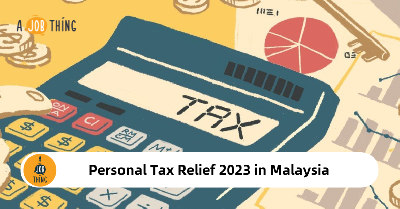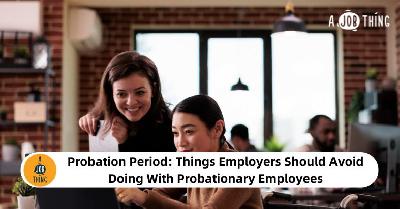
Company WhatsApp Group: Good or a Bad Idea?
Create Job Description Using AI
Write appealing job descriptions for any job opening to attract the most qualifield and suitable candidates. FOR FREE.
try now
Everybody is at least a part of a group chat nowadays, be it on Telegram or WhatsApp. Companies found out how easy it is to communicate with every employee through these platforms. All you need is a smartphone with internet access.
So, now many people are a part of the company WhatsApp group. It allows us to not only communicate with coworkers fast but also discuss new ideas. As long as everyone follows the rules, there is no problem for a company to use WhatsApp.
But, of course, this isn't the perfect world. You have probably heard about the story of an employee who was dismissed for quitting her company's WhatsApp group. If you haven't read it, check out the story here. There are countless stories regarding misconduct involving companies' WhatsApp groups.
In this article, we will help you consider if it's a good idea to create a company WhatsApp group.
The Good and the Bad
WhatsApp is great for engaging with and managing remote teams. With its ease of communication and flattening of hierarchies, it is a great channel for people to come together and discuss about new ideas or products and other business improvements.
WhatsApp is also secure. Companies do not need to worry as the security of the messages is ensured due to the end-to-end encryption, which means that only the sender and the recipient or group can read the message.

Social media is a powerful tool.
But with the good comes the bad. Workplace issues are increasing because of the unofficial use of tools like WhatsApp. According to Guild, 38% of professionals use WhatsApp for work purposes. As a result, many people are exposed to issues such as:
-
Being excluded from groups and plans for after-work social activities.
-
Gossip or ‘banter’ and inappropriate language in messages.
-
Inappropriate pictures or videos being shared.
Many new employees and existing workers are at risk of being excluded from unofficial WhatsApp groups or other social media challenges which could lead to discrimination. Employers should make employees aware that they personally could be liable for harassment claims, and could also be exposed to civil or criminal complaints under the existing law in Malaysia.
Another critical problem for employers to manage is the reduction in productivity with employees using WhatsApp for personal or unofficial work engagement reasons during business hours. Not to mention, if your company has a culture of messaging after hours and over weekends, it can be problematic for employees. Employers should know their boundaries when it comes to communicating with employees after working hours.
Protecting your organisation
The best way for companies to move forward is by creating a social media policy. This policy should set out the standards and examples of acceptable behaviour and language used in messaging, whether they're devices supplied by the employer or the employees' own devices. Employers must also remember to communicate this policy to all employees.
As an employer, you also have the right to consider if your mobile phone policies should have rules and expectations around when employees can use their phones.

In this modern age, every company should have a social media policy in place.
There are employers who encourage their staff to use WhatsApp for business purposes through the employee's own smartphone. Additionally, employers could also create a Bring-Your-Own-Device policy (BYOD). This policy usually deals with the acceptable use of such devices, information security, privacy and the employer's right of access.
It is also recommended that all organisations carry out an audit of the communication and social media channels being used by employees. This process should be done when employers are reviewing existing policies or creating new ones. Employers should also decide which channels are official and which ones are not.
Finally, it is wise to train staff so they will understand your organisation's culture and how it applies to the use of messaging and social media. Most people do not know that the messages they send could be used as evidence in court as they are disposable, so make sure they are made aware of this.
Before creating a company WhatsApp group, every employer should weigh the options and see whether the benefits outweigh the risks or if it's the other way around.
Want to know what AJobThing is all about? Click here!
Source: HR Magazine
Related articles
Quitting Company's WhatsApp Group: Can You Get Fired for That?
Should an Employer be Facebook Friends with Their Employees?
Should Social Media be Blocked at Work?





